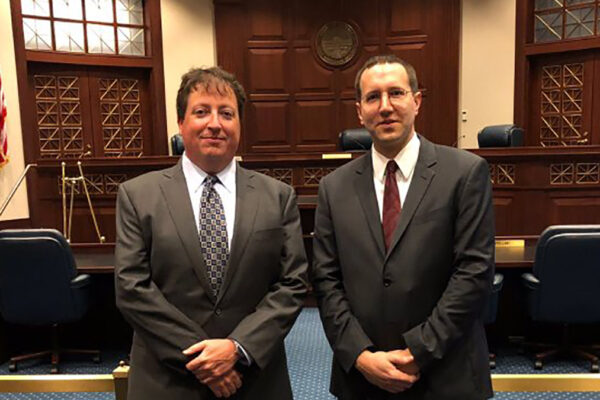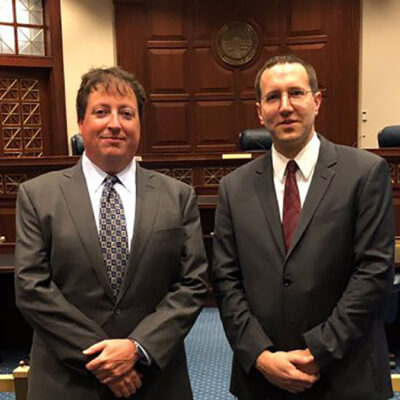Hamilton County has one of the highest rates of homelessness in Ohio. In the City of Cincinnati alone, the United States Department of Housing and Urban Development estimates that over 7,500 people—about 1,800 of whom are children—will experience homelessness in any calendar year. On a single day in 2016, some 6,000 people took refuge in County shelters, which are crowded to capacity and regularly forced to turn people away. Left with no choice, groups of people experiencing homelessness have lived for years on Cincinnati’s Third Street, Fort Washington Way, and elsewhere in tents and other makeshift shelters. These group encampments, though obviously far from ideal, are safer and more stable than camping alone.
After trying and failing to enact a legislative solution, Mayor John Cranley decided to solve the City’s homelessness crisis by punishing its most vulnerable victims. On August 3, 2018, he announced that he had
asked for his own City to be sued by the Hamilton County Prosecutor, in a collaborative effort to force citizens in encampments to disperse:
"This afternoon, I also asked for and have obtained the assistance of Hamilton County Prosecutor Joe Deters. Prosecutor Deters will be filing actions in state court and we will file motions in federal court. I thank Prosecutor Deters for his help in this matter. Together we will continue to pursue all strategies to end this unsafe practice. I ask for patience as we pursued (sic) appropriate court orders."
–Press Release from Mayor John Cranley, Aug. 3, 2018
True to the Mayor’s word, the County Prosecutor sued the City three days later, in Hamilton County court. Also as the Mayor had promised, the City’s attorneys put up no resistance: to the contrary, they worked together with the prosecutor’s office, passing along documents and evidence to help build the case against their own City.
The lawsuit unfolded at breakneck speed. Prosecutors filed an expanding series of requests that homeless encampments be broken up: first to break up encampments throughout the City’s public land, then those in public spaces across the entire county, and finally those on any land in any part of Hamilton County, public or private. The court rubber-stamped one request after another—and then, when the impacted people attempted to show up to a scheduled hearing to protest, the court cancelled the hearing. A mere ten days after it started, the lawsuit was had served its purpose. The result was staggering in scope. By court order, anyone allowing or living in any encampment anywhere in Hamilton County, other than in a commercial, for-profit camp, was risking arrest and criminal punishment.
New Prospect Baptist Church, a 100-year-old religious institution in Cincinnati’s Roselawn neighborhood, was caught in the crossfire. Under the leadership of Pastor Damon Lynch, III, New Prospect pursues a religious mission to provide help and shelter to those in need, including the thousands of Cincinnatians experiencing homelessness.
The church had even purchased and set aside campground space for use as a shelter—but under the court’s order, it would be committing a crime if it offered that land for use.
Courts are not legislatures. They resolve specific disputes between specific parties; they don’t have the power to set county-wide policies or enact laws. The fact that the Hamilton County court tried to do so was a troubling misuse of its authority, one that infringed on the rights of the helpless at the behest of powerful political figures.
So we sued. The ACLU of Ohio, representing New Prospect, argued that the Hamilton County court did not have the power to issue the order that it did. After over a year of litigation, the First Circuit Court of Appeals agreed, and struck down large portions of the unlawful order. Anyone hosting or living in an encampment on private land—like New Prospect’s charitable campground—or in areas of Hamilton County outside the City of Cincinnati, is now free from the county court’s order.
The fight for fair and compassionate homelessness policies in Cincinnati and across Ohio will likely rage on. But when overzealous governments overstep their power to trample on the civil rights of the helpless, they risk being challenged in court, and stopped. New Prospect’s and the ACLU of Ohio’s victory here will send that message.


